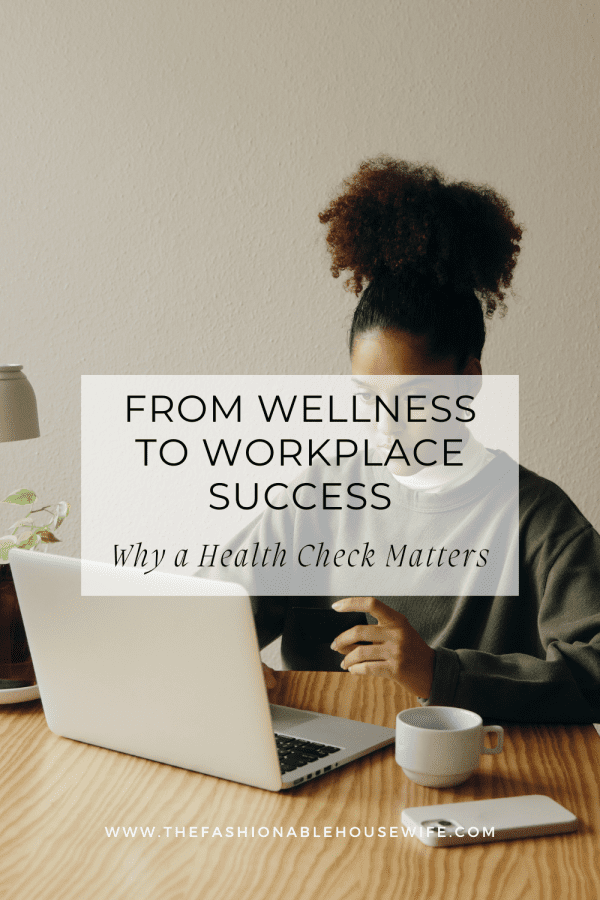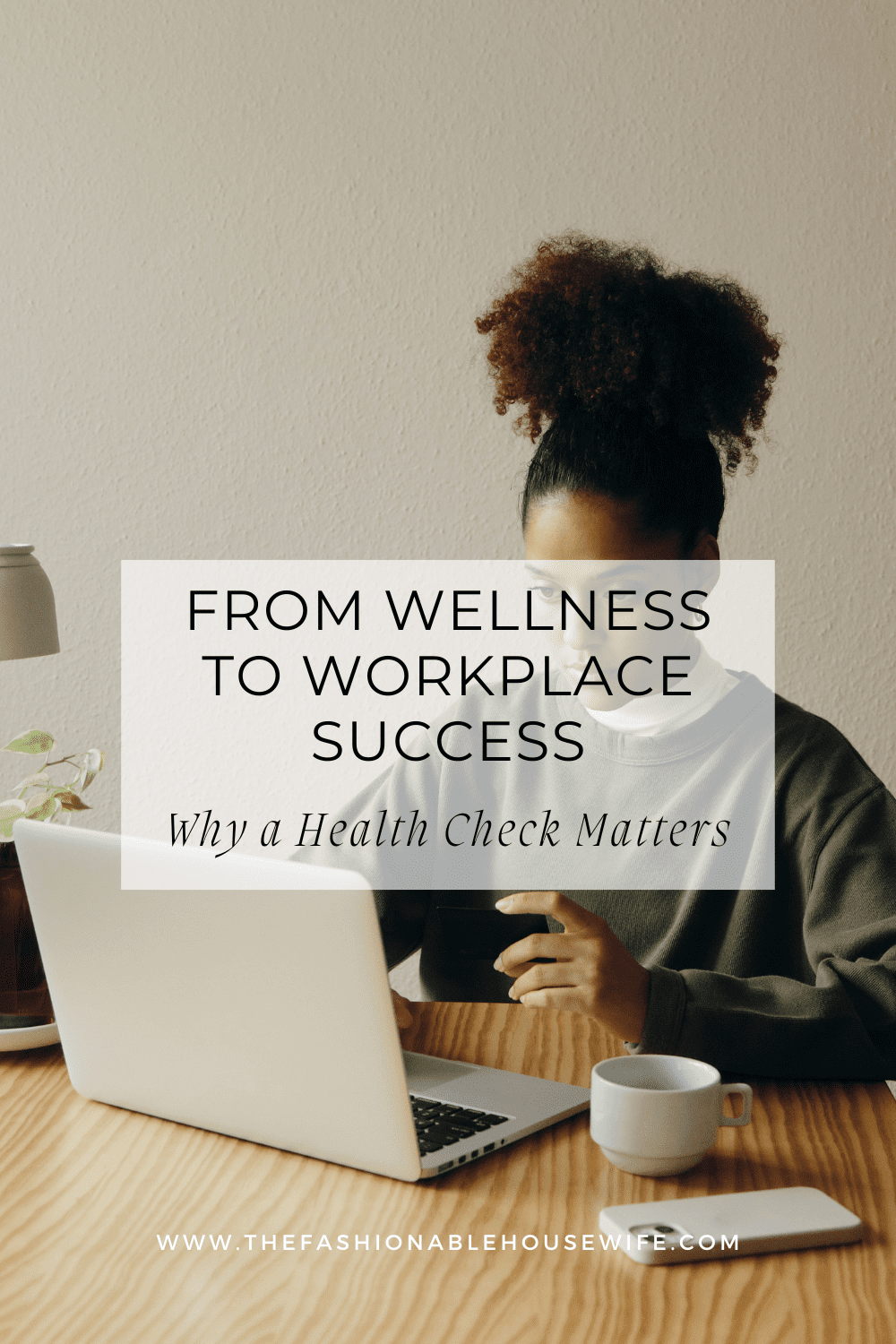From Wellness to Workplace Success: Why a Health Check Matters

A person’s health plays a crucial role in their professional success. Whether it’s maintaining energy levels, improving concentration, or ensuring workplace safety, regular health checks can be a game-changer. Many people only visit a doctor when they feel unwell, but preventative health assessments can help detect potential issues early, reduce absenteeism, and contribute to long-term career success.
The Link Between Health and Workplace Performance
Good health directly impacts productivity, focus, and resilience at work. When employees are in peak condition, they:
- Have higher energy levels – Fatigue and burnout are common barriers to professional success, leading to burnout. A well-managed diet, exercise routine, and regular health screenings help maintain stamina throughout the workday.
- Think more clearly – Mental clarity is crucial for decision-making, problem-solving, and overall efficiency. Chronic conditions like high blood pressure, sleep disorders, and even nutrient deficiencies can hinder cognitive function.
- Reduce absenteeism – Employees who invest in their health are less likely to take unplanned sick days, improving reliability and workflow stability.
- Experience lower stress levels – Stress-related illnesses contribute to workplace disengagement. Regular health check-ups help identify and manage stress-related conditions like anxiety, hypertension, and digestive issues.
Workplaces benefit from a healthier workforce, as fewer absences, increased engagement, and improved morale lead to stronger business outcomes and a better work life for you.
Preventative Health Checks: Catching Issues Before They Escalate
Routine check-ups identify potential health risks early, preventing minor concerns from developing into serious conditions. Common screenings include:
- Blood Pressure Monitoring – Detects risks of hypertension and cardiovascular issues.
- Cholesterol and Blood Sugar Tests – Helps prevent diabetes and heart disease.
- Eye and Hearing Tests – Critical for professions that require sharp senses, such as drivers, machine operators, and healthcare workers.
- Nutritional and Fitness Assessments – Helps individuals make informed lifestyle choices.
Preventative care allows individuals to take proactive steps in maintaining their health, ensuring they remain at their best in both their personal and professional lives.
Health Checks for Specific Careers
Certain industries require specialized health assessments to ensure employees can meet job-specific physical and mental demands. For example:
- Commercial Drivers and Transportation Workers – Those in trucking, public transport, and delivery services must meet strict medical requirements. A DOT physical ensures drivers are fit to operate heavy vehicles, evaluating vision, hearing, blood pressure, and overall physical capability.
- Construction and Manual Labor – Regular physicals ensure workers can handle physically demanding tasks without compromising safety.
- Aviation and Maritime Professionals – Pilots, air traffic controllers, and ship crew members undergo routine medical evaluations to assess their cognitive function, cardiovascular health, and physical endurance.
- Healthcare Professionals – Doctors, nurses, and emergency responders must meet fitness standards to manage high-pressure situations.
- Corporate and Office Workers – While not physically demanding, roles that involve long hours at a desk can lead to issues like obesity, cardiovascular disease, and stress-related disorders, making regular health assessments beneficial.
These assessments prioritize safety, protecting both the individual and their colleagues by ensuring they can perform their duties without health-related risks.
The Impact of Workplace Wellness Programs
Many employers are recognizing the importance of workplace wellness initiatives, which often include:
- On-site health screenings – Making it easy for employees to access routine check-ups.
- Mental health support – Offering counseling services, stress management programs, and work-life balance resources.
- Fitness and nutrition guidance – Encouraging employees to adopt healthier habits through gym memberships, nutrition counseling, and wellness incentives.
Companies that invest in employee health see higher retention rates, improved job satisfaction, and increased productivity—making wellness initiatives a win-win for both employers and employees.
Taking Charge of Your Health for Career Longevity
A thriving career starts with prioritizing personal health. Scheduling regular health check-ups, maintaining an active lifestyle, and seeking medical advice when necessary can prevent long-term health complications and contribute to workplace success.
No matter your profession, staying proactive about wellness ensures you remain at your peak—both physically and mentally—so you can excel in your career for years to come.

